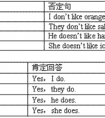小医生,下列各句均有一处错误,你能找出并改正吗?1. He finished do his homework at last.___________________________________2. His family has lived here for five-八年级英语
She caught me by the arm…… 她抓住了我的手臂。
20 用在某些习惯用语中
例:
in the morning 在上午
in the evening 在晚上
in the field 在田野里
in the country 在乡间
in the sun 在阳光下
in the distance 在远处
on the right 在右边
by the way 顺便说一下
in the front of 在前部
in the daytime 白天
go to the concert 去听音乐会
at (/in) the beginning 开始
at the moment 当时,此刻
all the year round 一年到头
go to the cinema 去看电影
go to the theatre 去看戏
at the weekend 周末in the afternoon 在下午
in the night 在夜里
in the sky 在空中
in the dark 在暗处
in the rain 在雨中
in the shade 在阴凉处
on the left 在左边
all the time 始终
in the middle of 在中间
on the way home 回家途中
all the same 依然
on the whole 总之
at the same time 同时
on the plane 在飞机上
in the year 2008 在2008年
the other day 前几天
at the bottom of 在……底部
in the end 终于
on the one hand, on the other hand 一方面,另一方面
提示:
下面几个短语前不加定冠词:
例:at dawn 在黎明
at night 在晚上
at noon 在正午
at dusk 在黄昏
the的固定用法:
一、在表示方位和方向的名词前面,一般要加the。如:
The sun rises in the east and sets in the west.
二、在乐器名称前面要加the。如:play the piano。
三、在形容词最高级或序数词之前一定要加the。如:the first,the best,等等。
四、表示全体总称(泛指)。
名词或者形容词前加the,可表示该事物的全体,如:the poor指“穷人”。
这一用法本身并不难,难在这一全体所表示的“数”上。
在一开始所举的例子中,the lion指的就是这“一”类,表示的是单数的概念。
但在下面这个例子中,the old又用单形表示了复数概念。
The old are apt to catch cold.
五、另外,定冠词the在固定词组中出现,需要多加注意,逐渐积累。
如:to tell the truth, to go to the theatre, to keep the peace, with the exception of, in the morning……
定冠词用法顺口溜:
特指双熟悉,上文已提及;
世上独无二,序数最高级;
某些专有名,习语及乐器。
注:定冠词常用于以下几种情况:
①“特指”某个或某些人或物前。例如:
The books on the desk are mine.书桌上的书是我的。
“双熟悉”指谈话双方都熟悉的人或事物前。例如:
Where is the teacher?老师在哪里?
②上文已经提到的人或事物前。例如:
I can see a cat.The cat is Lucy's.我能看见一只猫。那只猫是露茜的。
③世界上独一无二的事物前。例如:
The earth goes around the sun.地球围绕太阳转。
④序数词或形容词最高级前。例如:
September is the ninth month of the year.九月是一年中的第九个月。
Mike is the tallest of the three boys.迈克是三个男孩中最高的一个。
⑤由普通名词构成的专有名词前。例如:
the Great Wall(长城),
the People's Park(人民公园)等。
⑥一些习惯用语中或乐器前。例如:
in the day(在白天),
play the piano(弹钢琴)等。
不用冠词的几种情况:
下列情况应免冠,代词限定名词前;
专有名词不可数,学科球类三餐饭;
复数名词表泛指,两节星期月份前;
颜色语种和国名,称呼习语及头衔。
注:
①名词前已有作定语用的this,that,these,those,my,your,his,her,our,their,some等限定词。例如:
this eraser,her pencil-box,some boxes,these women等。
②泛指的不可数名词前一般不用冠词。例如:
meat,rice,water,bread,tea,milk,juice等。
③表示学科的名词前一般不用冠词。例如:
Chinese,maths,English,physics,history等。
④在三餐饭和球类运动前一般不用冠词。例如:
have breakfast/lunch/supper,play basketball/football/volleyball/table tennis/tennis/pingpong等。
⑤复数名词表示泛指时不用冠词。例如:
His parents are both workers.他父母都是工人。
The people in the room are doctors.房间里那些人是医生。
⑥季节、节日、星期、月份前不用冠词。例如:
autumn,winter,Teachers' Day,Children's Day,Sunday,Wednesday,February,October等。
⑦表示颜色、语种和国家的名词前不用冠词。例如:
white,brown,French(法语),Japanese(日语),Australia,America(美国)等。
⑧表示称呼语的名词之前以及职务、头衔的名词后也跟有名词时不用冠词。例如:
What's wrong,Granny?老奶奶,怎么啦?
Doctor Green is a scientist.格林博士是位科学家。
考点名称:副词
- 副词:
是一种用来修饰动词、形容词、全句的词,说明时间、地点、程度、方式等概念的词。副词是一种半虚半实的词。
副词可分为:地点副词、方式副词、程度副词、疑问副词和连接副词。
副词连用顺序:程度副词+方式副词+地点副词+时间副词。 副词分类:
1、时间副词有三类:always, often, usually, sometimes, never, ever, hardly等一般位于系动词、情态动词和助动词之后,实之前义动词
1)表示发生时间的副词:
It’s beginning to rain now! 现在开始下雨了!
2)表示频繁程度的副词,也称频度副词always, often, usually, sometimes, never, ever, hardly等一般位于系动词、情态动词和助动词之后,实之前义动词:
She often changes her mind. 她常改变主意。
3)还有一些其他表示时间的副词:
He has just had an operation. 他刚动过手术。
2、地点副词:
1)有不少表示地点的副词:
She is studying abroad. 她在国外留学。
2)还有一些部分与介词同形的副词。它们与介词同形,跟宾语的是介词,否则是副词:
①用作介词:Stand up! 起立!
②用作副词:A cat climbed up the tree. 猫爬上了树。
3)以where 构成的副词也是地点副词:
It’s the same everywhere. 到处都一样。
3、方式副词:
carefully, properly(适当地), anxiously(焦虑地), suddenly, normally(正常地), fast, well, calmly(冷静地), politely(有礼貌地), proudly(自豪地), softly, warmly ,slowly
4、程度副词:
much,little, very,rather(相当),so,too,still, quite, perfectly(完美地), enough, extremely(非常), entirely(整个),almost, slightly(细小地), hardly.
5、疑问副词:
how, when, where, why.
6、关系副词:
when, where, why.等。
7、 连接副词:
therefore(因此),moreover(此外),however,otherwise(另外的),then,when ,where,how,why等。副词的语法作用:
副词在句中可作状语,表语,补语,定语。
He works hard. (作状语)
他工作努力。
You speak English very well. (作状语)
你英语讲的相当好。
Is she in ? (作表语)
她在家吗?
Let's be out. (作表语)
让我们出去吧。
Food here is hardly to get. (here作定语,hardly作状语)
这儿很难弄到食物。
Let him out!(作补语)
让他出去!
修饰名词的副词放在被修饰词之后
a. The villagers there are busy getting in wheat.不同类型副词的用法比较:
方式副词:
1)英语中有大量方式副词,说明行为方式(回答how的问题):
How beautifully your wife dances. 你夫人舞跳的真美。
2)还有相当多的副词,表示某些情绪:
She smiled gratefully. 她感激的笑了笑。
3)还有一些以-ly结尾的副词,表示动作发生的状况:
He left the town secretly. 他悄然离开了这座城市。
程度副词和强调副词 :
1)程度副词可修饰动词,表示“到某种程度”: Is she badly hurt? 她伤得重吗?
[说明] 这类副词除修饰动词外,还可修饰形容词(a)或另一副词(b):
a. fairly simple 相当简单 quite correct 完全正确
b. wonderfully well 好极了 do it very quickly 干得很快
2)much 是一个特殊的程度副词,它可以:
a. 修饰形容词等:
I’m not much good at singing. 我唱歌不太好。
b. 修饰比较级:
You sing much better than me. 你比我唱的好多了。
Their house is much nicer than ours. 他们的房子比我们的好多了。
疑问副词和连接副词:
1)疑问副词:疑问副词用来引导特殊问句:
how: How is your grandmother? 你奶奶身体好吗?
where: Where does she come from? 她是哪儿人?
when: When can you come? 你什么时候能来?
why: Why was he so late? 他为什么来得这么晚?
- 最新内容
- 相关内容
- 网友推荐
- 图文推荐
| [家长教育] 孩子为什么会和父母感情疏离? (2019-07-14) |
| [教师分享] 给远方姐姐的一封信 (2018-11-07) |
| [教师分享] 伸缩门 (2018-11-07) |
| [教师分享] 回家乡 (2018-11-07) |
| [教师分享] 是风味也是人间 (2018-11-07) |
| [教师分享] 一句格言的启示 (2018-11-07) |
| [教师分享] 无规矩不成方圆 (2018-11-07) |
| [教师分享] 第十届全国教育名家论坛有感(二) (2018-11-07) |
| [教师分享] 贪玩的小狗 (2018-11-07) |
| [教师分享] 未命名文章 (2018-11-07) |

![Which of the following can you probably see in the meeting room? [ ]A. B. C.D. -七年级英语](http://www.00-edu.com/d/file/ks/4/2/dongmingci/2020-01-08/small97361980a56115e1c9237567439904fe1578422951.jpg)

![—Can the boy finish_____ the book in about a week? —I think he can. [ ]A. read B. reading C. to read D. reads -八年级英语](http://www.00-edu.com/d/file/ks/4/2/dongmingci/2020-01-08/smallfa4d713075e249356362fe7392193a301578421751.png)


